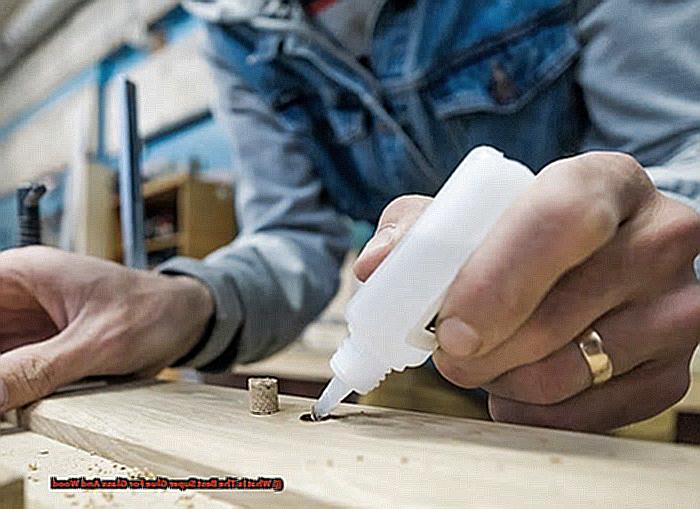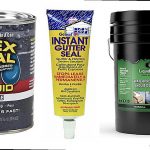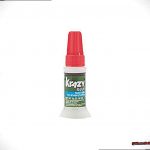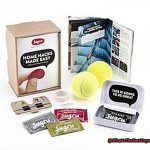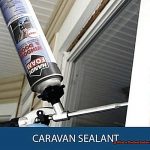Welcome to our blog post where we dive into the world of super glue for glass and wood projects. Whether you’re a crafty mastermind or a DIY rookie, finding the perfect adhesive can be a game-changer. We’re here to guide you through some top contenders, their pros and cons, and help you make an informed decision. So grab your safety goggles and let’s get started.
When it comes to bonding glass and wood, two heavy hitters take the stage: epoxy and cyanoacrylate (also known as super glue). Epoxy is like the superhero of adhesives – it’s strong, versatile, and can tackle pretty much any material in its path. With its two-part formula that involves mixing resin and hardener, epoxy allows for precise application and creates a bond that could withstand an earthquake (well, maybe not that extreme).
But don’t underestimate the power of super glue. This quick-fix wonder might not require a cape, but it sure knows how to save the day. With instant results and minimal effort needed, super glue is perfect for those urgent repairs or last-minute projects. However, there’s a catch – not all super glues are created equal. You need one specifically formulated for glass and wood if you want your bond to hold up.
Now, before you rush off to buy your new adhesive sidekick, let’s weigh the pros and cons of each contender. It’s time to find out which glue will be your trusty companion on your glass and wood adventures.
What is Super Glue?
Contents
Super glue, also known as cyanoacrylate adhesive, is a remarkable substance that has revolutionized the world of adhesives. This fast-acting adhesive is a go-to solution for bonding materials together due to its versatility and strength. With the ability to bond various surfaces, including glass and wood, super glue is a reliable choice for countless applications.
At the heart of super glue lies its main ingredient: cyanoacrylate. This liquid monomer undergoes a rapid polymerization process when it comes into contact with moisture. This reaction causes the glue to harden almost instantly, creating a strong and durable bond. The moisture necessary for this process can come from the air or the surface being bonded, emphasizing the importance of clean and dry surfaces before applying the glue.
Super glue comes in different forms to suit various needs. Liquid super glue is commonly used for general bonding purposes, while gel super glue offers better control and is ideal for vertical applications. Spray super glue allows for an even distribution of adhesive over larger areas, making it perfect for projects requiring extensive coverage.
One of the most impressive features of super glue is its lightning-fast curing time. Unlike many other adhesives that may require hours or even days to fully cure, super glue sets within seconds. This characteristic makes it invaluable for quick fixes or projects with tight deadlines. However, it is important to note that while the initial bond may be strong, the full strength of the bond may take several hours to develop.
Super glue’s versatility extends beyond its ability to bond glass and wood. It can also effectively bond plastics, metals, ceramics, rubber, and more. This wide range of compatible materials has made super glue an essential tool for household repairs, DIY projects, and even intricate crafting endeavors.
While super glue offers extraordinary benefits, it is crucial to exercise proper safety precautions when using it. Working in a well-ventilated area helps avoid inhaling the fumes emitted by the adhesive. Direct contact with the skin should be avoided, as super glue can cause irritation or even bond to the skin. In case of accidental contact, seeking medical advice is recommended.
Factors to Consider When Choosing the Best Super Glue for Glass and Wood
When it comes to choosing the best super glue for glass and wood, there are several important factors to consider. Firstly, the strength of the glue is crucial for ensuring a durable bond between the two materials. Look for a glue that specifically mentions its bonding strength on glass and wood.
Compatibility is another key factor to consider. Not all super glues are compatible with both glass and wood, so it’s essential to choose a glue that is suitable for bonding these materials. Check the product specifications or label to ensure compatibility.
Drying time is also important to consider. Quick-drying super glues can be convenient, allowing you to continue working on your project without delay. However, if you require more time for adjustments or positioning, a slower-drying glue may be more suitable.
Transparency is another factor to think about. If you want a seamless finish, opt for a super glue that dries clear or transparent. This will ensure that the bond is not visible, particularly on glass surfaces. However, if you plan to paint or stain the wood later, transparency may not be as important.
Depending on your specific project requirements, consider whether you need a super glue that is waterproof or heat-resistant. If your project will be exposed to moisture or heat, such as in bathrooms or near stoves, choosing a glue with these properties is essential.
Ease of use should also be taken into account. Look for a super glue that is easy to apply and work with. Consider factors such as viscosity and applicator design. Some glues come with precision applicators that allow for controlled application, while others may have a thicker consistency that requires more effort to spread evenly.
The longevity of the bond created by the super glue is another crucial factor. You want a glue that can provide a durable and long-lasting bond between glass and wood. Look for reviews or product information that mention the longevity of the bond.
Lastly, it’s important to consider any safety precautions associated with the super glue you choose. Some glues may emit strong fumes or require additional ventilation during application. Read the product label or instructions carefully to ensure safe usage.
Cyanoacrylate-Based Super Glues
Cyanoacrylate-based super glues are the go-to adhesive for bonding glass and wood surfaces with their remarkable fast-acting and robust bonding capabilities. These glues, also known as “instant” or “quick-drying” glues, are formulated using a chemical compound called cyanoacrylate. When this compound makes contact with moisture in the air or on the surfaces being bonded, it rapidly undergoes a polymerization reaction that creates resilient bonds capable of withstanding significant stress and tension.
One of the standout advantages of cyanoacrylate-based super glues is their ability to bond different materials together, including glass and wood. Glass, smooth and non-porous, meets its perfect match in wood, which possesses a porous surface with natural variations in texture. Cyanoacrylate glues exhibit exceptional adhesion properties that enable them to effectively unite these two materials, forging a connection that is both strong and durable.
To achieve optimal bonding when using cyanoacrylate-based super glue on glass and wood, meticulous surface preparation is crucial. The surfaces must be meticulously cleaned, dried, and free from any dust, oil, or other contaminants that could potentially hinder the adhesive’s bonding ability. Additionally, slightly roughening the wood surface can enhance the strength of the bond by providing more surface area for the glue to grip onto.
One of the defining features of cyanoacrylate glues is their rapid curing time. These glues typically dry within seconds to minutes, influenced by factors such as humidity and temperature. This rapid-drying property renders them highly convenient for projects demanding instantaneous results or when working with delicate or small objects.
Moreover, once fully cured, cyanoacrylate-based super glues demonstrate excellent resistance to moisture and temperature extremes. They can endure exposure to water, heat, and cold without compromising their bonding strength, making them well-suited for both indoor and outdoor applications.
However, it is worth noting that cyanoacrylate glues may not be suitable for all types of glass and wood bonding applications. In cases where flexibility is required or when surfaces will be subjected to constant stress or movement, alternative adhesives like epoxy or polyurethane might be more appropriate.
Adhesive Strength
Adhesive strength, the ability of glue to create a powerful bond between two surfaces, is a crucial factor when it comes to selecting the right super glue for glass and wood. To achieve a durable and long-lasting bond, it is essential to choose a glue that offers high adhesive strength.
When considering adhesive strength, it is important to take into account the type of surface being bonded. Glass and wood have different properties, with glass being smooth and non-porous, while wood has a porous and uneven surface. Therefore, the glue needs to have properties that allow it to penetrate the pores of the wood and create a strong bond with the glass.
The composition of the super glue itself also affects adhesive strength. Different brands and types of super glues contain various ingredients that contribute to their adhesive properties. Some glues are specifically formulated for bonding glass, while others are designed for wood. To ensure optimal adhesive strength, it is important to select a super glue that is suitable for both materials.
Curing time is another factor that impacts adhesive strength. While super glues cure quickly, forming a bond within seconds or minutes, the full strength of the bond may take longer to develop. Following the manufacturer’s instructions regarding curing time is crucial to ensure maximum adhesive strength.
Furthermore, some super glues offer enhanced adhesive strength through additional features or technologies. “Industrial-strength” or “heavy-duty” formulas provide superior bonding capabilities with higher tensile and shear strengths. These types of super glues are ideal for applications where maximum durability is required.
Transparency
Transparency is more than just a characteristic of super glue for glass and wood. It is a fundamental concept that extends beyond adhesive products, encompassing various aspects of our lives. Transparency can be defined as the quality of being clear, open, and honest. It involves providing information, disclosing intentions, and operating in a manner that is easily understood and accessible to others.
In the context of governance and business, transparency refers to the disclosure of information and decision-making processes. It involves being open about policies, procedures, and financial transactions, allowing stakeholders to understand how decisions are made and resources are allocated. Transparent organizations promote accountability and trust, as they are willing to share information and invite scrutiny.
Transparency is also important in relationships and communication. Openness and honesty foster trust and understanding between individuals. When we are transparent with others, we share our thoughts, feelings, and intentions openly, ensuring that there are no hidden agendas or misunderstandings. Transparent communication promotes healthy relationships and effective collaboration.
Furthermore, transparency plays a crucial role in fostering public trust in institutions and governments. Citizens have a right to know how their elected officials make decisions and allocate public resources. Transparent governments ensure that information is readily available to the public, allowing citizens to hold their leaders accountable.
In the digital age, transparency has taken on new dimensions. With the rise of social media and online platforms, individuals and organizations are able to share information instantaneously with a global audience. This has led to increased demands for transparency in areas such as data privacy, cybersecurity, and online content moderation.
Versatility
Versatility is a crucial factor to consider when determining the best super glue for glass and wood. A versatile glue can be used for various applications and materials, providing a strong bond and reliable performance. But what exactly does versatility mean in this context? Let’s delve into it.
One key aspect of versatility is the ability of the glue to bond different types of wood and glass. Wood can vary in terms of density, porosity, and moisture content, while glass can vary in terms of smoothness and transparency. Therefore, the ideal super glue should be able to bond different types of wood, such as hardwood, softwood, or engineered wood, as well as various types of glass, including clear glass or stained glass.
Another aspect of versatility is the ability of the glue to bond other materials commonly used in combination with glass and wood. Metal hardware or plastic components often accompany glass and wood projects. A versatile super glue should be able to create a strong bond between these materials as well. This ensures that you can use the same glue for multiple aspects of your project without compromising the overall strength and durability of the bond.
Furthermore, a versatile super glue should be able to handle different environmental conditions. Moisture, temperature changes, and UV rays can all have an impact on the longevity of the bond. If you are working on outdoor projects or items that will be exposed to elements like rain, sun, or extreme temperatures, it is crucial to choose a glue that can withstand such conditions.
Additionally, it is worth considering the versatility in terms of application methods. Some super glues come in squeeze bottles with precision applicators, allowing for easy and controlled dispensing. Others may come in pen-style applicators or have brush tips for more precise application on smaller areas or intricate details. Choosing a versatile super glue that offers different application options can make your projects more convenient and efficient.
Popular Brands of Super Glues for Glass and Wood
When it comes to super glue for glass and wood, there are several popular brands that stand out for their quality and performance. One such brand is Gorilla Super Glue, known for its strong and durable bond that works well on both porous and non-porous surfaces. It is particularly suitable for glass and wood projects as it dries clear, ensuring an invisible bond. However, it may not be the best choice for large or heavy objects due to its strength lying in its instant bonding ability rather than long-term durability.
Loctite Super Glue is another well-known brand offering variations specifically formulated for glass and wood bonding. Loctite’s glass glue provides a clear, transparent bond that resists water, heat, and common household chemicals. Their wood glue is designed to create a strong and durable connection on wood surfaces. However, some users have reported issues with the longevity of the bond when using Loctite super glue on glass.
Bob Smith Industries is a brand that offers a range of super glues suitable for glass and wood bonding. Their Insta-Cure+ line is known for its fast setting time and strong adhesive properties, working well on both porous and non-porous surfaces. It is important to note that the fumes from these glues can be strong, so proper ventilation is necessary.
3M Super 77 Multipurpose Adhesive, although not marketed specifically as super glue, is a popular choice for glass and wood bonding. It is a spray adhesive that provides a strong and durable bond on various surfaces, including glass and wood. It is particularly useful for larger projects where an even and uniform application is required. However, it may not be ideal for delicate or intricate bonding due to the challenging control of the spray application.
E6000 Craft Adhesive is also popular for bonding glass and wood. It offers versatility and a strong hold, forming a flexible bond that resists water, heat, and chemicals. It is paintable, making it suitable for projects that require additional finishing touches. However, it has a longer drying time compared to other super glues, requiring patience when using it.
Conclusion
To conclude, when it comes to selecting the ultimate super glue for glass and wood projects, both epoxy and cyanoacrylate (super glue) are formidable contenders. Epoxy boasts unparalleled strength and adaptability, while super glue offers rapid results with minimal exertion. However, not all super glues are created equal, so it is imperative to find one specifically designed for bonding glass and wood.
Super glue, also known as cyanoacrylate adhesive, is a remarkable substance that has revolutionized the adhesive world. Its extraordinary versatility and robustness enable it to bond various surfaces together, including glass and wood. Available in liquid, gel, and spray forms, super glue caters to diverse project requirements.
When choosing the ideal super glue, several factors come into play. Adhesive strength is paramount for establishing a long-lasting bond between glass and wood. The composition of the super glue itself affects adhesive strength significantly. Additionally, curing time plays a pivotal role in determining the adhesive’s potency.
Transparency is another crucial aspect to consider when evaluating super glues. In this context, transparency refers to being clear, open, and honest – traits that promote accountability and trustworthiness. Opting for a transparent super glue ensures that you are making an informed choice.
Versatility is key when searching for a top-notch super glue for glass and wood projects. It should possess the ability to bond different types of wood and glass effortlessly alongside other commonly used materials. A truly versatile super glue can withstand various environmental conditions without compromising its effectiveness.
Some popular brands that excel in providing exceptional super glues for glass and wood include Gorilla Super Glue, Loctite Super Glue (specifically formulated variations), Bob Smith Industries’ Insta-Cure+, 3M Super 77 Multipurpose Adhesive, and E6000 Craft Adhesive.
In summary, identifying the best-suited super glue for your glass and wood endeavors necessitates careful consideration of factors such as adhesive strength, compatibility, drying time, transparency, versatility, and safety precautions.

